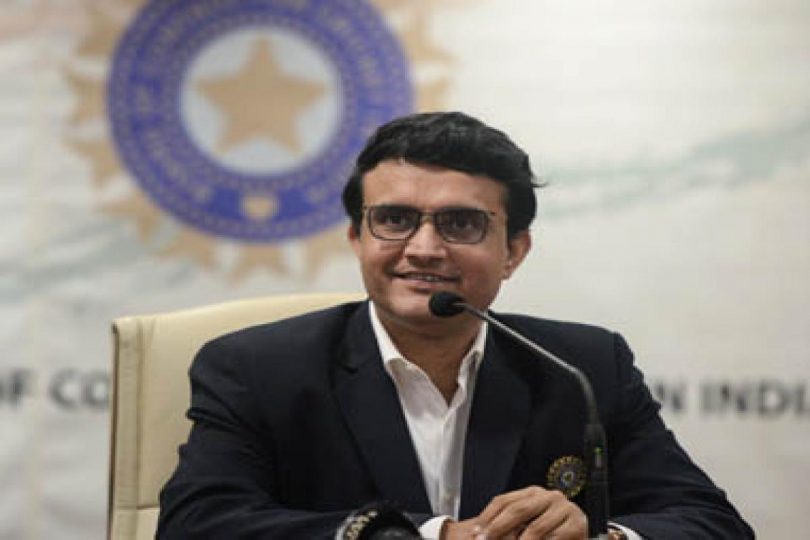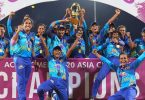Written By: Sharda Ugra
On December 14, Edtech startup Classplus announced Board of Control for Cricket in India (BCCI) president Sourav Ganguly as brand ambassador. Classplus are the direct competitors of Team India’s shirt sponsors Byju’s. This is president Ganguly’s second association with a company whose rivals are BCCI sponsors: he endorses fantasy gamers My11Circle, whose rival Dream11 paid Rs 222 crore to be the 2020 IPL title sponsor.
The Classplus announcement passed without a sneeze. (Byju’s and Classplus did not respond to questions sent to them over emails and texts).
The words ‘conflict of interest’ (CoI) baffle Indian cricket as if cricketers and officials were asked to get their heads around the unified field theory.
Ganguly at the moment is occupied trying, along with BCCI secretary Jay Shah, to hold on to their positions. The board will have its Annual General Meeting (AGM) on Christmas Eve. In the new year, the Supreme Court will listen to a petition filed by BCCI treasurer Arun Dhumal to change sections in the new BCCI constitution about, among other things, extending Ganguly and Shah’s tenures.
The BCCI top dogs are counting on the Supreme Court to overturn and scrap its own recommendations, instructions and orders, and restore the board’s original (some might say, mouldy) administration. The key change sought by the petition is to scrap a rule sending officials who have completed six successive years in BCCI or state associations into a three-year cooling off period.
Under the new constitution, Shah’s tenure ended around September 2019 and Ganguly completed his six-year innings (as Cricket Association of Bengal joint-secretary, president and then BCCI president) on July 26 this year. They should already have been cooling-off. Ganguly, when contacted, said he will only comment after the December 24 AGM.
Ganguly’s single-minded grip on power is not surprising. As player, he was always a political animal, handling criticism with timely leaks and humorous forbearance. Urbane and charming, his gracious, old-style manner quite like his cover-drive, found the gaps between critics, colleagues, and officials.
What has been hard to digest though is the cricketing stuff.
Deal maker
The BCCI president occupies the highest office in Indian cricket and represents a wider community; millions, if you include the youngest fan to the oldest, along with every single person involved in the game. An office of great prominence, but which Ganguly has treated as his personal brand engine.
When asked for comment, BCCI’s official sponsors whose rivals are endorsed by its president say they have no objections. A Dream11 spokesman said the company had no issue with Ganguly’s deal with MyCircle11: “If everyone is complying to the set guidelines, entering into any association is a choice of the individual and company concerned.”
When contacted, Bhavin Pandya, co-founder and CEO of Games24X7, the company behind MyCircle11, said, “There is no relationship between the two [being the BCCI president and the face of our brand]. Mr. Sourav Ganguly has endorsed our brand since April 2019 and then became the BCCI president in October 2019. We are puzzled by this line of thought because we have no affiliation with the BCCI, therefore neither has the brand nor has Mr. Ganguly received any direct or indirect benefit owing to him holding the two positions simultaneously. Please also note that it would have been a conflict of interest if Mr. Ganguly was the brand ambassador of the brand that became the title sponsor of BCCI’s main tournament.”
Sports administrators usually aren’t celebrity sports stars. The closest example to Ganguly is world athletics president Sebastian Coe. Coe stepped down from his $100,000 ambassadorial role with Nike months after taking office in 2015.
There is another slippery slope: Ganguly is the brand ambassador for JSW Cement, and on the advisory board on JSW’s Inspire Institute of Sport. JSW owns the IPL franchise Delhi Capitals. Ganguly’s response to Indian Express, when asked about this in July, was that the cement company didn’t sponsor Delhi Capitals so his role wasn’t conflicted. That both companies were owned by the same people who owned Delhi Capitals didn’t count.
Conflict? What’s that?
Even if the new BCCI constitution did not have specific regulations referring to conflict, Ganguly’s approach to his BCCI position is problematic.
Conflict of interest is BCCI’s original sin, which began the retrofitting of its constitution in September 2008, allowing N Srinivasan to own an IPL franchise. The matter was escalated into the Supreme Court by the BCCI after the Bombay High Court declared the board’s investigation into a 2013 IPL corruption scandal as illegal.
Among cricket people, including past and present players, there is deep disappointment over Ganguly. The domestic contracts he promised have not materialized. Post-Covid, the lack of cricket puts the livelihood of 6500 players (men’s, women’s, junior boys and girls) and roughly 500 match officials (umpires, match referees, scorers, video analysts, curators, grounds staff) under financial distress.
Being BCCI president is not merely about the big stuff – hosting IPL, commenting about player selections and Rohit Sharma’s fitness (like he were a TV expert and not a neutral head of the Indian game) and having the secretary’s office ask state associations what domestic events they prefer via email referendum.







